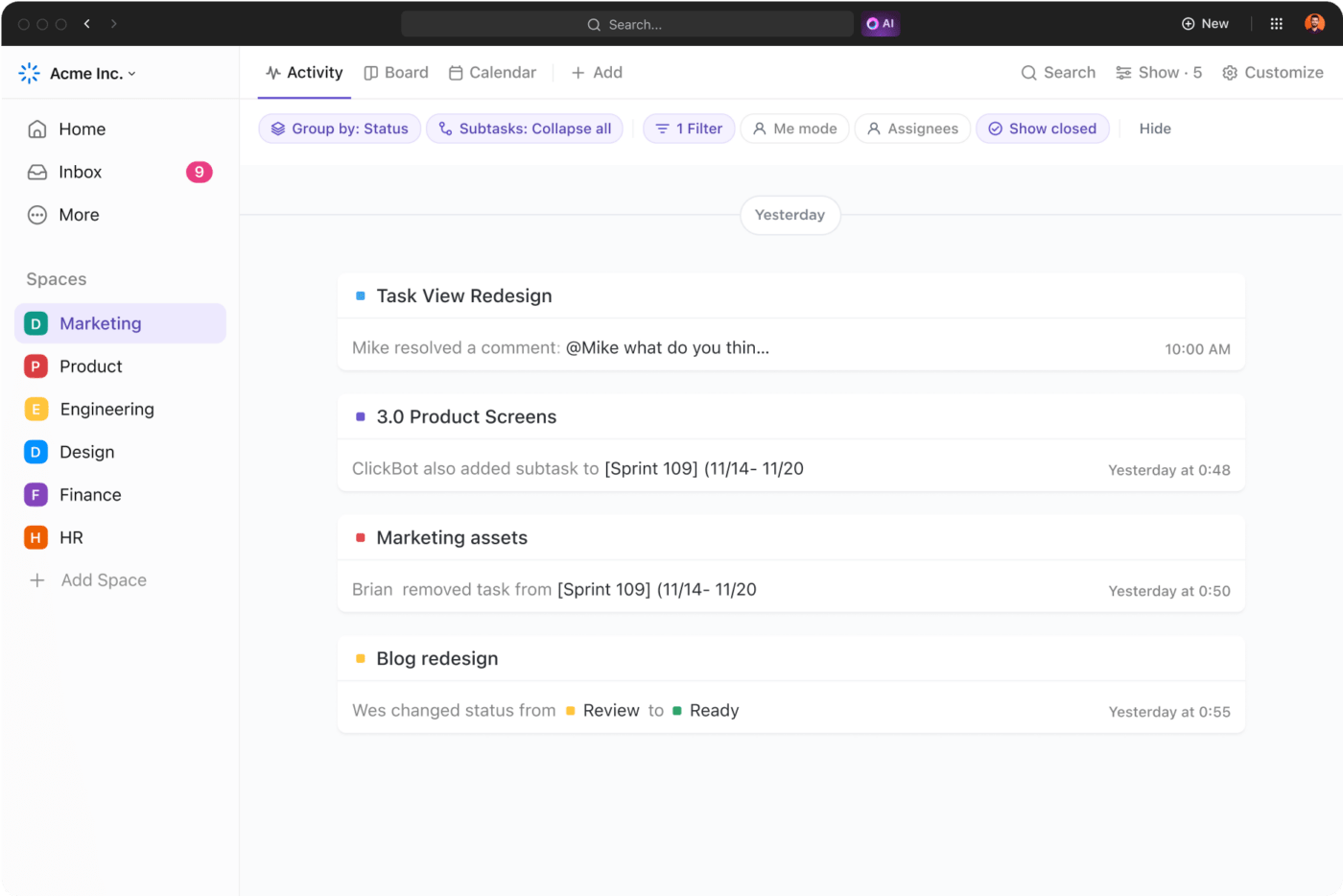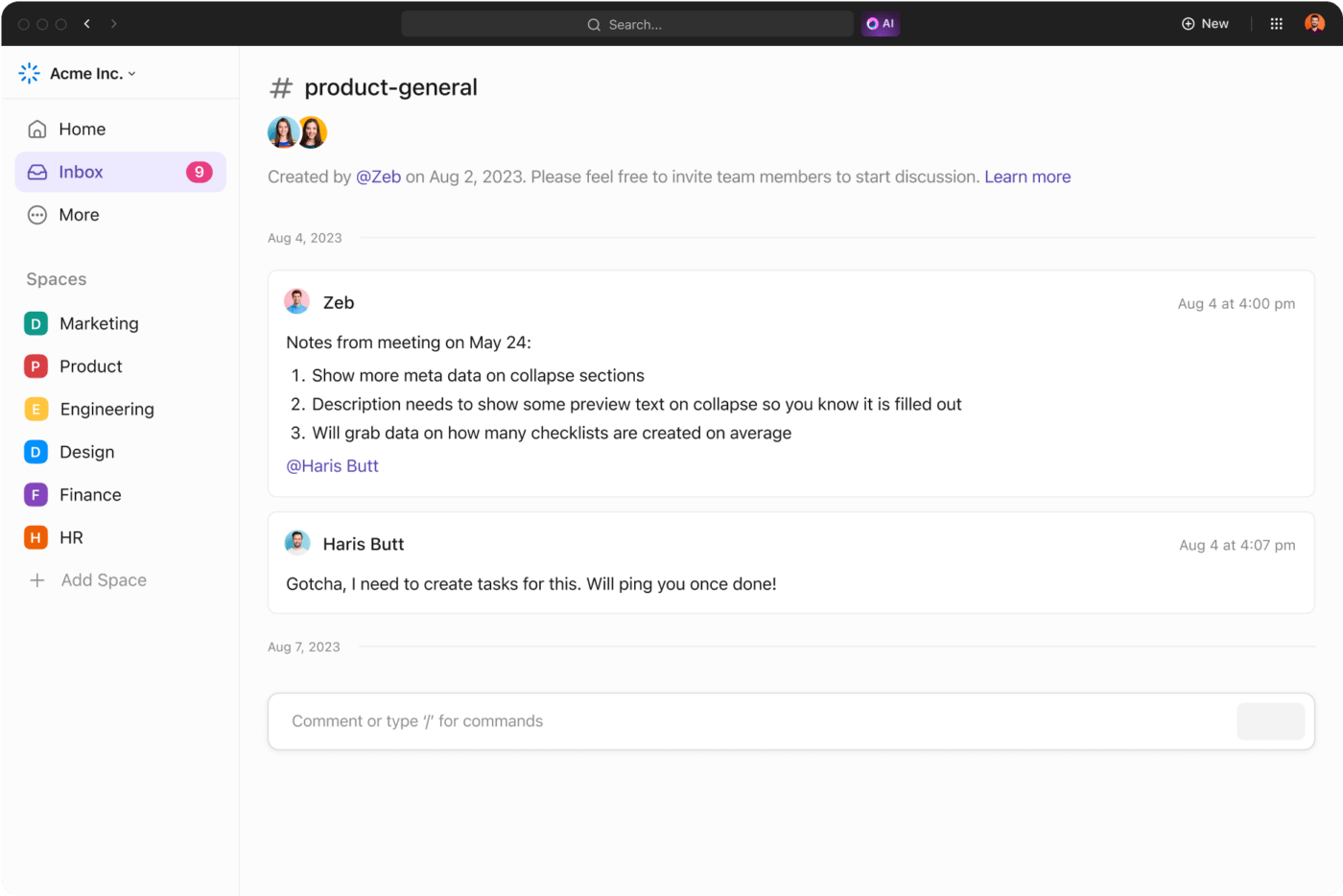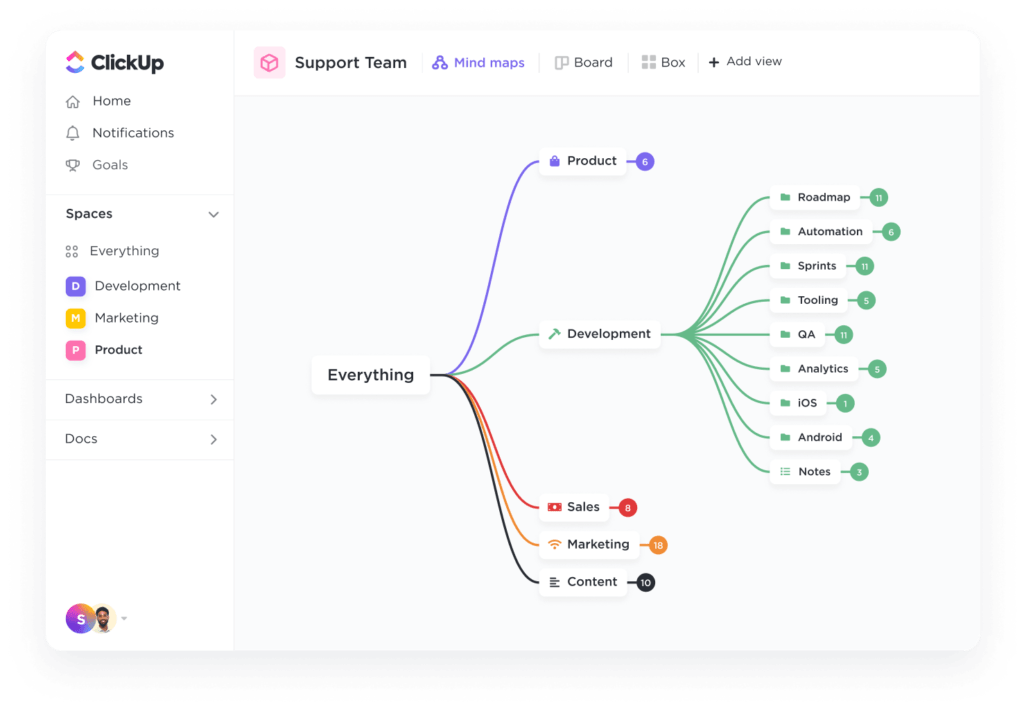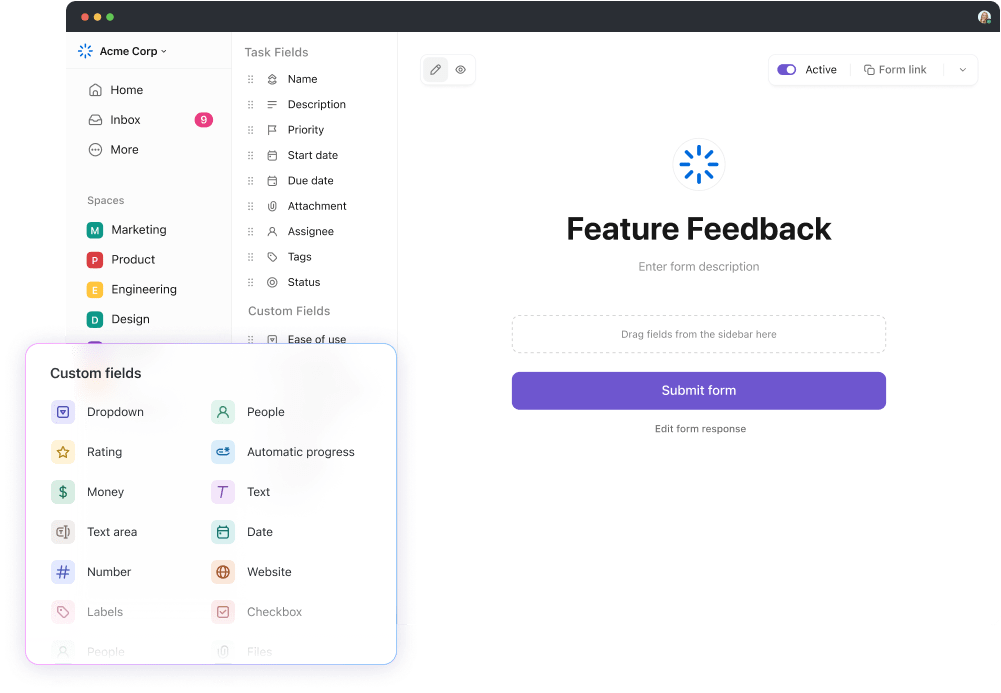

Effective leadership is the cornerstone of a positive and empowering work environment. It guides an organization’s mission and values and inspires teams to be productive, innovative, and committed.
But what differentiates good leaders from great leaders?
Exemplary leaders are able to build strong relationships with people both inside and outside the organization. They demonstrate empathy, stay calm during turbulent situations, and make informed decisions even under pressure.
The totality of this is what we call emotional intelligence.
In this blog post, we cover the importance of emotional intelligence in leadership and how you can hone your skills to be a better leader.
What Is Emotional Intelligence?
Emotional intelligence (EI) is the ability to deeply understand, analyze, and manage your own emotions while being mindful of the people around you. It is a set of unique skills that enables people to navigate complex social environments, resonate with the feelings of others, build relationships, and make informed decisions in a calm and relaxed manner.
💡Pro Tip: Learn more about emotional intelligence through this Summary of Daniel Goleman’s Emotional Intelligence and understand how to incorporate these principles into your professional life to become a better leader.
Emotional intelligence and its organizational impact
Let’s look at the impact of emotional intelligence at work and how it affects multiple areas of an organization.
The role of EI in employee engagement, job satisfaction, and employee retention
According to a study by TalentSmartEQ, emotional intelligence is responsible for about 58% of an employee’s job performance.
This is because emotional intelligence in the workplace:
- Opens lines of communication: An emotionally intelligent leader recognizes the importance of allowing employees to express their thoughts and emotions freely. They encourage transparent communication to improve trust and reduce misunderstandings
- Creates a positive work environment: Emotional intelligence compels people to be empathetic, understanding, and respectful to their fellow team members. Emotionally intelligent leaders are capable of intelligently solving workplace conflicts and maintaining a supportive atmosphere
- Reduces burnout: Empathetic leaders are well aware of their employees’ workloads and provide the necessary support whenever needed. They are flexible with schedules and make adjustments so employees can strike a balance between their professional and personal life
- Creates growth opportunities: A strong leader recognizes the strengths and skills of their employees. They help employees grow within the organization and take on more challenging roles that better utilize their skills and capabilities
2. Contribution of EI to team cohesion and organizational commitment
A Harvard Business Review report states that teams with higher emotional intelligence are 20% more likely to demonstrate team cohesion than those with lower emotional intelligence.
There are several reasons why emotional intelligence has a marked impact on how employees perceive an organization and their commitment to it. Here’s how emotional intelligence is key to a healthy work environment:
- Provides support and development: An emotionally intelligent leader can recognize individual skills and offer relevant growth and upskilling opportunities. This makes team members feel supported and improves their commitment to the organization
- Encourages inclusivity: A strong leader can leverage the diverse perspectives of different team members and use them to improve organizational growth. Emotionally intelligent leaders focus on creating a safe workspace where everyone feels respected, irrespective of who they are or where they come from
- Manages conflicts: Leaders with high EQ are well-equipped to handle disputes in the workplace without causing rifts between employees. They take a tactful approach that does not offend anyone and resolve the conflicts amicably, fostering respect and open communication among team members
3. How emotional intelligence influences leadership and mentorship in the workplace
As many as 90% of top leadership performers have high EQ.
This is because leaders with high emotional intelligence are capable of being strong mentors due to the following factors:
- Higher empathy and understanding: Leaders with high EI can better empathize with employees and understand their feelings and challenges. They offer personalized guidance whenever necessary and help employees address gaps in their performance
- Adaptability: An emotionally intelligent leader can understand the evolving needs of their team and make adjustments to their strategies and approaches in favor of employee learning and growth
- Effective team communication: One of the most vital skills of emotionally intelligent leaders is effective communication. They can give feedback positively and encouragingly so that everyone feels valued and understood
4. Impact of emotional intelligence on remote work and millennial workers
As per a study by Mississippi University for Women, millennials are the most emotionally intelligent generation of managers, while Gen Z needs the most help with emotional self-awareness.
Remote work is a rising trend, especially among millennial and Gen Z workers. However, for remote work to be effective, employees must demonstrate a certain level of emotional intelligence to address the unique challenges and demands of the online workspace. Lack of emotional intelligence leads to miscommunication, confusion, and decreased productivity.
This is because emotional intelligence helps with the following in a remote work environment:
- Strong employee relationships: In remote settings, in-person interactions are highly limited, and it can be difficult to sense a team member’s emotional tone. Emotional intelligence helps leaders to effectively use video conferencing tools and other digital workspace solutions to hold one-on-one meetings with team members and check in on them to see how they are doing even when they are miles apart. This helps foster stronger relationships with employees since they feel more connected and supported
- Accountability: A strong leader sets clear expectations for their employees and holds them accountable for their goals and objectives. However, they also understand the importance of trust and autonomy and strike a balance between offering guidance and allowing employees the freedom to make decisions
- Alignment with millennial workers: A millennial employee has different expectations from the workplace than a baby boomer. Emotionally intelligent leaders recognize generational differences and try to create an engaging and motivating work environment for millennial workers. They provide meaningful feedback, enable a flexible working schedule, and provide support when needed—all of which are values that millennials prioritize in their workplace
💡Pro Tip: Use AI-driven HR tools to automate processes like sorting through candidate applications, employee onboarding, generating reports, and eliminating repetitive work. Enable your HR managers to focus on hiring the best talent for your organization.
What Is Emotional Intelligence in Leadership
Emotionally intelligent leaders display specific attributes and leadership skills. It is essential to look for these attributes when choosing a leader so that they are empathetic and understanding of subordinates and team members.
Here are ten characteristics of an emotionally intelligent leader:
1. Self-awareness: Leaders should be able to recognize their own emotional triggers, strengths, weaknesses, and the impact they have on others. This is important in controlling emotions and making decisions that align with personal and organizational values
2. Self-regulation: Controlling and managing emotions is extremely important during stressful circumstances and is a key leadership behavior. It is impossible to trust a leader who flies off the handle as soon as they are confronted with stress or pressure. Being self-aware and staying calm and level-headed during conflicts helps leaders respond thoughtfully and carefully to situations
3. Empathy: A good leader can resonate with an employee’s emotions, perspectives, and challenges and offer fruitful solutions. It helps them respond with compassion and foster a positive work culture where all opinions are welcome
4. Social skills: An emotionally intelligent and successful leader has strong social skills that help them navigate complex social situations, collaborate with team members, and devise diplomatic solutions during conflicts
5. Motivation: Emotional intelligence creates an internal drive that pushes leaders to improve and set an example for others. Not only do emotionally strong leaders demonstrate strong work ethics, but they also try to foster a culture of continuous innovation and support where employees can thrive
6. Effective communication: An emotionally intelligent leader can intuitively sense an employee’s emotional state and tailor their communication according to the different employee work styles. Such leaders are adept at verbal and non-verbal communication and offering objective feedback
7. Conflict resolution: Being emotionally intelligent lets you see both sides of a dispute and offer tactful and diplomatic solutions. This is essential in the workplace since effective conflict resolution builds trust among subordinates
8. Active listening: A leader must be able to listen attentively to their employees and demonstrate genuine interest in their thoughts and perspectives. Active listening is important for leaders to comprehend information and offer thoughtful input
9. Accountability: Emotionally intelligent people foster a productive mindset in which they hold themselves accountable for their actions and decisions. They also set clear expectations of others and ensure that everyone takes responsibility for their actions and see it through
10. Timely recognition: An emotionally intelligent leader is generous with their appreciation and acknowledges employee efforts for work well done. They celebrate the milestones and achievements of their team members and offer constructive feedback when necessary
💡Pro Tip: Use employee recognition software to accurately measure and reward a worker’s contribution.
How to Implement Emotional Intelligence as a Leader in the Workplace
Being a leader comes with its own set of challenges. In addition to managing your emotions, you must also learn to take care of your employees, ensure their well-being, and make them feel valued. This is on top of all the administrative work of managing a team.
To make it easier, you can use ClickUp.
ClickUp’s HR Management Platform helps you consciously apply emotional intelligence principles to support your team and develop a better workplace.

With ClickUp, you can create and store important employee information in a single location. The centralized information can be easily shared with stakeholders and other managers so everyone can access employee data and make informed decisions about hiring or employee development.
You can also create standardized workflows for your recruitment processes using templates or tasks, such as onboarding, candidate screening, and interviewing. This improves your efficiency and ensures consistency in all your HR processes.
Leverage ClickUp’s advanced features to:
1. Improve self-awareness
Encourage your employees to set personal development objectives, such as improving their listening skills, enhancing communication, or developing leadership abilities.
Using ClickUp Goals, you can help employees take a systematic approach to achieving these objectives. Create a trackable goal for each personal development objective and set milestones for each goal.

For instance, if your goal is to ‘Enhance communication skills,’ then the milestones would be:
- Enroll and achieve 100% completion of an online public speaking course
- Complete ten successful weekly team meetings where you practice active listening. Get feedback from peers
- Prepare and deliver a pitch for an exciting campaign idea
Similarly, you can create multiple goals for soft and technical skills and view their progress roll-ups from a single dashboard. This way, you’re always on track to reach your objectives.
ClickUp’s Daily Goal Template can also be a powerful tool for leaders looking to develop their emotional quotient (EQ). By breaking down EQ goals into smaller, actionable steps and tracking progress daily, leaders can build self-awareness, empathy, and relationship management skills over time.
2. Manage team workloads
An imbalanced workload can cause unnecessary stress among employees and eventually lead to burnout.
As a leader, you must be able to track your team’s workload and ensure that everyone is working at their optimal capacity to help employees maintain their emotional stability.
A good practice is using ClickUp Views to monitor how work is distributed among your team members. Three different types of views can help you monitor your team’s efficiency.
- Team View: Monitor your team’s priorities—track what your employees are working on and how much work has been completed
- Workload View: Get a bird’s eye view of your team’s capacity and determine if anyone is under or overworked. Add time estimates and assign priorities so that everyone on your team knows exactly what they need to be working on
- Activity View: See what a particular team member has worked on in a specific project. Use filters to determine what activities have been completed. You can also see the comments they have been tagged in, their edits, and the updates they shared

3. Establish accountability
Encourage employees to take ownership of their tasks and activities. Accountability is an important attribute in building emotional intelligence. It helps employees develop a sense of responsibility and make well-thought-out decisions every time.
Use ClickUp Tasks to create and assign tasks to your team members. Every task has a due date so that your employees know exactly what they are responsible for and when it is due. You can add Custom Statuses to determine a task’s progress, use task types to determine the kind of work to be done, and set priority levels so team members know what they need to focus on.

4. Encourage informal conversations among employees
Casual banter and informal exchanges are part of a healthy workplace culture.
A good way for team members to communicate informally is to use the ClickUp Chat View. Team members can share project updates, ask for feedback, and engage with others in real time.
To invite a teammate to your conversation, all you need to do is @mention them. You can add comments, assign action items, and embed links within the chat so that everyone can access important information.

You can even outline a communication plan for your employees using the ClickUp Communication Plan Template. It offers an easy-to-use framework that can streamline both internal and external business communication.
With the template, you can:
- Create a standardized communication protocol for your target audience
- Establish clear goals for communication. Examples include improving the effectiveness of team communication or increasing customer engagement
- Include stakeholders and get their input on communication guidelines
- Track the success of your communication efforts
Read More: 15 Free Project Communication Plan Templates
5. Practice diplomatic conflict resolution
Leaders often face workplace conflicts, and finding solutions that are satisfactory to all parties involved in the arguments can be challenging.
Using ClickUp Mind Maps can make conflict resolution slightly easier. Mind maps generally break down complex concepts into smaller ideas. Connectors are used to draw and represent how different ideas are connected, giving you a visual representation of your projects.

In conflict resolution, Mind Maps can be used to represent opposing sides in an argument and represent everyone’s point of view. This helps everyone involved to get a fair idea of the different sides of the argument and work together to find a diplomatic solution.
In addition, you can encourage your employees to be open and express themselves with the ClickUp Emotions Wheel Icebreaker Template. It’s an interactive version of an icebreaker and a great way to get your employees to talk about their feelings and establish a deeper connection with teammates, which is essential for conflict resolution.
Here are some benefits of the template:
- Monitor employee emotions and understand how a person feels throughout the day
- Identify how different emotions impact the performance of an employee
- Provide a safe space for employees to discuss their emotions openly
- Improve team dynamics and performance
You can also use ClickUp Brain’s AI assistance to get actionable suggestions for work-related issues. Simply use a prompt tailored to your unique use case and get task recommendations or personalized strategies to tackle the issue.

6. Provide constructive feedback
As a leader, you must offer continuous and constructive feedback to your employees. This helps them improve their performance and grow in their careers in a complex business environment.
Use ClickUp Comments to provide feedback on an employee’s completed tasks. This is useful during approval and review processes to let employees know what is expected of them.
For instance, you can assign a comment by using @mentions to tag the name of the person or department you want to provide input to. The comment will open up a new action item for the assignee, which can be closed once they complete the required task.

7. Gauge employee feedback
Active listening is one of the most important emotional intelligence skills of a great leader. Take employee feedback regularly and see how to improve current processes for a better experience.
You can use the ClickUp Form View to create anonymized surveys for your employees. Once employees complete the survey, their responses are automatically categorized and analyzed in detail, with appropriate follow-up action.

Another option is using the ClickUp Employee Feedback Template to understand employees’ thoughts about the organization and leadership. The template is designed to help you capture meaningful employee feedback and monitor employee sentiment.
It creates a space for employees to give unbiased opinions and suggestions for improvement. Custom Statuses can help you monitor the progress of employee feedback. Use Custom Fields to categorize feedback based on value, company culture, work distribution, role clarity, and other key criteria. This lets you see exactly which factor is commonly cited as a concern.
Improve Emotional Intelligence in Leadership and Team Dynamics with Ease
An emotionally intelligent leader can empathize with their team members, understand their perspectives, communicate clearly, and manage workplace conflicts appropriately.
In today’s evolving job market, employees are increasingly looking for positive, empowering, and supportive workplaces, making emotional intelligence crucial in attracting and retaining top talent.
However, developing emotional intelligence involves multiple aspects, and every leader needs help navigating complex interpersonal relationships and creating an inclusive workplace.
This is where a project management tool like ClickUp can be helpful.
ClickUp offers several features that can help establish accountability, improve collaboration, streamline communication, and track progress toward critical goals. These features are essential in encouraging open communication and helping employees work together more effectively.
If you’d like to explore how ClickUp can improve team dynamics and help you tap into your emotional intelligence, sign up for free today and test it out for yourself.






